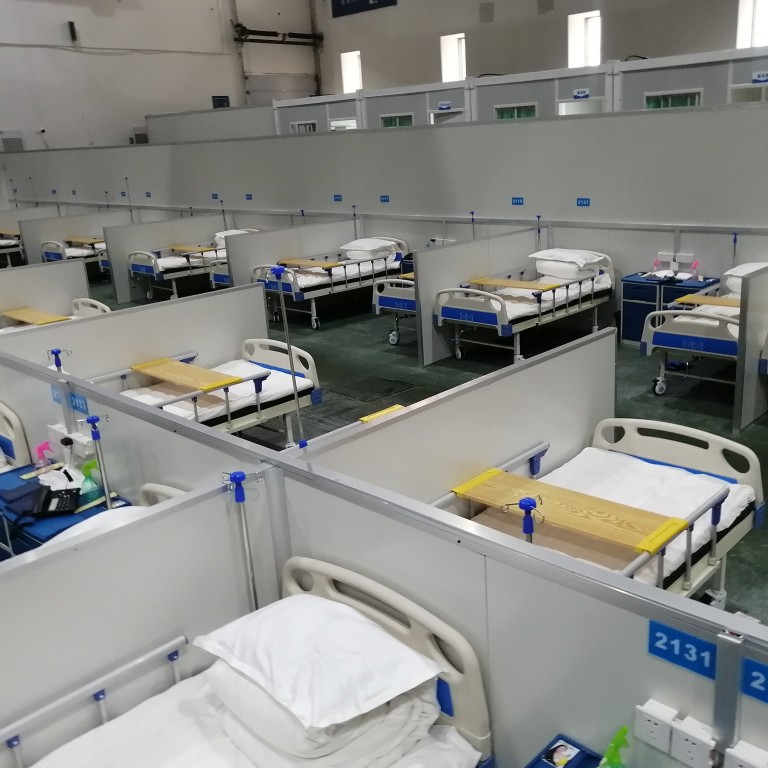
Coronavirus: China’s move to free up hospital resources welcomed by doctors
- Mild cases will no longer be sent to hospitals, and people can now isolate at home for seven days after they’re discharged
- Infectious disease expert Zhang Wenhong says it will ease the burden on the health care system and bring ‘more confidence’ in Covid-19 fight
Under the new guidelines, mild cases will no longer be sent to hospitals, though they will still have to isolate at designated facilities. Previously, anyone who tested positive was admitted to hospital for observation. After leaving hospital, people will also be able to isolate at home for seven days instead of spending 14 days at a quarantine facility.
“People will soon be discharged from hospital much faster and without further isolation [in a designated facility], as hospitals focus on treating the severe cases,” Zhang, who is also head of infectious diseases at Huashan Hospital, told reporters on Thursday.
“This will optimise and significantly free up health care resources and we will have more confidence about fighting Covid-19 in the future.”
Jiang Rongmeng, vice-president of Ditan Hospital which treats Covid-19 patients in Beijing, said the move to send mild cases to isolation facilities would have a big impact.
“The guidelines for running Covid-19 treatment hospitals call for 40 nurses and at least 15 to 20 doctors for 40 beds,” Jiang told state broadcaster CCTV on Wednesday. “We also need to rotate staff every four to six hours because they’re wearing protection suits. So the medical staffing is two to three times higher than for our usual patients.”
A ‘Big White’ bunny dance fires up China’s internet amid Covid battle
Asked if the changes could lead to adjustment of pandemic control measures, Zhang in Shanghai said: “The three key weapons in fighting Covid-19 – protection from vaccines, improved treatment capabilities and ample health care resources – have all seen major changes in the guidelines.”
He also noted that the latest version included the clinical use of Pfizer’s pill Paxlovid and an antibody treatment made by Brii Biosciences.
Zhang said the changes were an important step in “fighting Covid-19 with wisdom”.
“I hope our future fight against Covid-19 will reach the target the people have been anticipating through such steps, one after another,” he said, without elaborating.
Another of the steps is to lower the threshold for a negative test result, bringing China in line with international practice and meaning people can leave hospital or isolation earlier. Now, a negative PCR test needs a “cycle threshold”, or Ct value, of 35 or above, down from 40.
Ct value indicates how hard it is for the test to detect the virus – the higher it is, the less virus there is in the swab sample and the less infectious the person is.
Zhang described it as a “major adjustment”. He said the average hospital stay for Covid-19 patients in Shanghai was 15 days, but that could be reduced to seven to 10 days with the measurement change.
“For some it could take months for the Ct value to drop from 40 to 35 and they have just had to stay in hospital, which is extremely unreasonable,” he said.
Zhang also said he and other doctors applauded the “dramatic change” to the requirements after patients are discharged from hospital, with people now allowed to isolate at home and monitor their health for seven days, with one coronavirus test.
“[This] is based on science, and the science guarantees that it is safe,” he said. “For the patient or the family that needs to isolate, staying at home will be very different.”

